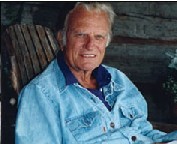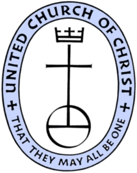Through all its long history, the Roman Catholic Church has conferred the posthumous title of "Great" on just two popes: Leo I and Gregory I, both of whom reigned early in the first millennium.
The church has not bestowed the mighty honor in 1,400 years, but some of Pope John Paul II's many admirers say his personal holiness, his vigorous assertion of church discipline, the extraordinary length and depth of his pontificate, and his role in toppling communism have earned him the right to be remembered as "Pope John Paul the Great."
John Paul's pontificate was controversial, however. While church liberals cheered his concern for the poor, immigrants and workers, many complained that his hierarchical view of unyielding conservatism, especially on gender issues, alienated millions from the Catholic Church.
Still, critics and admirers agree that John Paul was a man of rare spirituality and energy who transformed the public image of the papacy. Instead of shuttering himself inside the Vatican bureaucracy, John Paul evangelized the globe, calling to Christ a world he saw threatened by secular materialism.
Scholar, mystic and world conscience, John Paul for 25 years asserted the dignity of every human being and called every person to holiness as he understood it.
Although best-known among non-Catholics for his foreign travels, pro-life moral teachings and challenge to communism, he also oversaw a major revamping of the Catholic Code of Canon Law, issued a new catechism or book of teachings, canonized 476 people as saints, issued 14 encyclicals, and promoted ecumenism with a vigor unmatched by any of his 262 predecessors.
John Paul's "distinctively contemporary enunciation of Christian dogma and his bold departures in papal diplomacy ... will reshape Catholicism's world role well into the third millennium of Christian history," argues George Weigel, author of "Witness to Hope," the official biography of Pope John Paul II.
"A 'conservative' pope? Or a Christian radical who will merit the title `John Paul the Great'?" Weigel once asked in an essay in The Philadelphia Inquirer. "Strip away the caricatures, and the latter is the more plausible interpretation."
Michael Farrell, former editor of the liberal weekly the National Catholic Reporter, views John Paul very differently, however.
He "created a division between right and left, conservatives and progressives. One half feels very disenfranchised while another applauds because he's giving us neat, clean answers," Farrell said in an interview.
John Paul, he said, suppressed dissent, permanently banned women's ordination, condemned as sinful any sexual activity not open to conception, rejected more gender-inclusive language in liturgies, refused to let divorced-and-remarried Catholics take communion, and refused to allow priests to marry.
These policies alienated millions of Catholics, Farrell said, and diminished the Catholic Church's moral prestige in developed countries.
Another leading Catholic liberal, the author Eugene Kennedy, said he had hoped to see the church grow more collegial after the Second Vatican Council of 1962 to 1965 and was disappointed to see the direction in which John Paul steered it.
Kennedy described John Paul as "a man who has stood as a prophet and has defended what most people would acknowledge as very great values: the sacredness of human life, the dignity of work and so on. He cannot be faulted in that regard.
"But within the church it's a different story. He has tried to restore what is the past of the church: a hierarchical form of government instead of the collegiality called for by the Second Vatican Council."
Church traditionalists, including Cardinal Anthony Bevilacqua, retired archbishop of Philadelphia, argue that John Paul's unyielding assertion of papal primacy, his nuanced interpretations of the Second Vatican Council, and his routing of unorthodox theologies helped put the church on a secure footing for the next century and beyond."
"I see him as a preserver of the truth," Bevilacqua said.
The cardinal said the liberal theologians' visions of diocesan bishops serving as co-legislators with popes, and of lay Catholics helping to choose local bishops, were false readings of the Second Vatican Council's notion of collegiality.
"Many theologians (after Vatican II) began to conceive of the church as if it were a state" that could function democratically, he said. "But the church comes from the will of God, and God does not take ballots on church teaching."
Bevilacqua dismissed allegations that John Paul was authoritarian, saying the pontiff often consulted at length with people of different viewpoints before making a decision.
The pope's controversial dismissals early in his pontificate of dissident theologians as Hans Kung and Charles Curran from pontifical universities came only after long discussion, he said.
The cardinal also said he doubted the pontiff ever aspired to be remembered as "Pope John Paul the Great" but wanted to be recalled rather as a teacher and leader. "He always said that his greatest title was simply `Successor to Peter.' For him, that came first."
Among the highlights of John Paul's legacy:
--A permanent ban on women's ordination. During his pontificate, the Vatican repeatedly declared that it was beyond the authority of any pope ever to ordain women. John Paul reiterated his (and the church's) longstanding argument that Jesus did not want women priests because He chose only men as His apostles. In 1994, he asserted that the teaching was infallible and closed to debate, and instructed his bishops not to encourage hope that the church might someday reverse its position.
--Ecumenical outreach. Although he always held up the Church of Rome as the only true church, John Paul sought to bridge some of the longstanding differences between Roman Catholicism and Judaism, Eastern Orthodoxy and Protestantism. In 1986, he became the first pontiff ever to visit a synagogue, the ancient Synagogue of Rome, and in 1994 he ignored his own secretary of state and established full diplomatic relations between the Vatican and Israel.
--Unprecedented saint-making. John Paul canonized 476 saints and declared 1,319 deceased Catholics "blessed," far more than any other pope in history. He also streamlined the canonization process.
--Numerous encyclicals. During his pontificate, John Paul wrote 14 encyclicals, or formal position papers, on such matters as capitalism and labor, the role of reason in faith, ecumenism, moral theology, and life.
--A revitalized Congregation for the Doctrine of the Faith. Under John Paul's hard-nosed appointee, Cardinal Joseph Ratzinger, the Vatican's high commission on dogma reversed the church's perceived drift toward liberalism and moral relativism. The congregation drafted the new catechism, disciplined unorthodox theologians, and pressed diocesan bishops to oversee the theology taught at local Catholic colleges and universities.
--Suppression of "liberation theology." Early in his papacy, John Paul suppressed the growing Marxist-influenced liberation theology movement within the church that urged the poor, especially in Latin America, to overthrow dictators.
--A new Code of Canon Law. At his instigation, the church in 1983 revamped its Code of Canon Law, last updated in 1917. The new code, comprising 1,752 laws, incorporated the Second Vatican Council's vision of the church as a "people of God."
--A new Catechism. In 1992, the church issued a comprehensive new catechism, or book of teachings on faith and morals. Unlike the small Baltimore Catechism familiar to many who were U.S. Catholic schoolchildren, in which short, simple answers were intended to be memorized, the 800-page Catechism of the Catholic Church was written for adults and designed to inform a Catholic sense of holiness and duty by illuminating topics as diverse as prayer, sexual identity, the Nicene Creed, papal authority, tax evasion, marriage and the Ten Commandments.
--Elevation of church conservatives. John Paul named all but five of the 135 cardinal electors who will name his successor. He also appointed most of the world's nearly 4,200 bishops. Virtually all are considered orthodox on matters of dogma and morality. They are likely to perpetuate John Paul's vision of the church for many decades.
Copyright © 2005, The Times-News - Lee Publications Inc., a subsidiary of Lee Enterprises
(8387 Zeichen)


